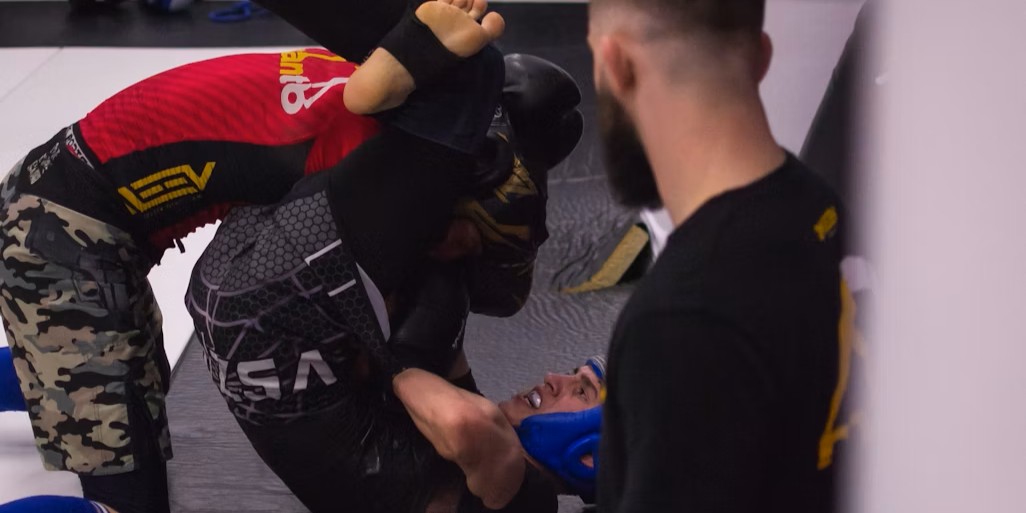Las Vegas, long known as the fight capital of the world, added another milestone to its resume on August 30 and 31, 2025, when the Craig Jones Invitational 2 (CJI 2) took over the Thomas & Mack Center. The city that has hosted legendary boxing matches, UFC super cards, and international spectacles welcomed an event that placed Brazilian Jiu-Jitsu squarely in the global spotlight. With its groundbreaking format, historic prize money, and worldwide livestream, CJI 2 not only thrilled those in attendance but also underscored Las Vegas’s growing role as a central stage for emerging sports.
The tournament’s format itself was a statement of intent. Eight international teams of elite grapplers competed in a Quintet-style elimination contest with $1 million on the line, the kind of prize money previously unheard of in professional grappling. Alongside the men’s team battles, a women’s bracket was introduced with a $100,000 payout, setting a new precedent for female athletes in the sport. The event was as much about spectacle as it was about competition. Every match carried weight, not only because of the prestige of winning on a stage like this, but also because of the life-changing financial stakes for athletes who have historically been underpaid compared to their counterparts in boxing or mixed martial arts.
For Las Vegas locals and tourists, the event blended seamlessly into the city’s culture of entertainment and high stakes. Fans who filled the Thomas & Mack Center experienced the energy of world-class grappling paired with the glitz and electricity for which the city is famous. Visitors arriving for the event were not limited to watching athletes on the mats—they also immersed themselves in the restaurants, nightlife, and entertainment that have long defined Las Vegas. For local businesses, the influx of fans and athletes further demonstrated how sporting events continue to fuel the city’s economic engine, complementing its booming entertainment and hospitality industries.
The global reach of the event made the city’s role even more significant. By streaming the entire tournament live and free on YouTube, organizers ensured that millions of fans around the world could be part of the action. Viewers from Brazil, Japan, Europe, and beyond tuned in, turning Las Vegas into the focal point of international grappling for two days. This decision not only expanded the sport’s audience but also showcased Las Vegas as a truly international hub where local events have global impact. In the digital age, where immediacy and accessibility are paramount, the success of the free broadcast demonstrated how a city with roots in live spectacle continues to thrive in the world of streaming and global engagement.
The presence of CJI 2 in Las Vegas also highlights how the city has steadily diversified its sports portfolio. Once known almost exclusively for boxing, it has become a home for major MMA cards, an NHL franchise in the Vegas Golden Knights, the NFL’s Las Vegas Raiders, and even global showcases like Formula 1 racing. Brazilian Jiu-Jitsu, though more niche, now finds itself welcomed into this growing roster of world-class competitions. For athletes and fans, the choice of Las Vegas signaled legitimacy—if an event takes place here, it is not just another tournament, but a spectacle worthy of global attention.
The energy inside the arena reflected that legitimacy. Fans cheered with an intensity often seen at championship boxing matches, responding to every sweep, submission attempt, and decisive victory. For the athletes, the stakes were not only financial but symbolic. Competing in Las Vegas, in front of a live audience and millions more online, offered validation for years of dedication to a sport that has often operated on the margins of mainstream attention. The historic payouts added gravity, but the platform itself elevated Brazilian Jiu-Jitsu to new cultural prominence.
By the time the event concluded, CJI 2 had cemented itself as a turning point—not just for grappling, but for Las Vegas’s role in hosting global sports. The combination of elite competition, massive payouts, and worldwide accessibility underscored the city’s continued evolution from fight capital to an all-encompassing sports capital. For locals, it was another weekend of live action; for visitors, an unforgettable addition to the city’s entertainment calendar; and for the global audience, it was proof that Las Vegas remains the center of gravity for sports that blend competition with spectacle.

